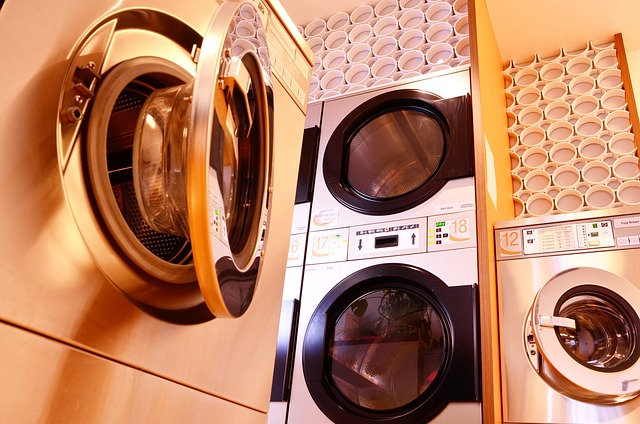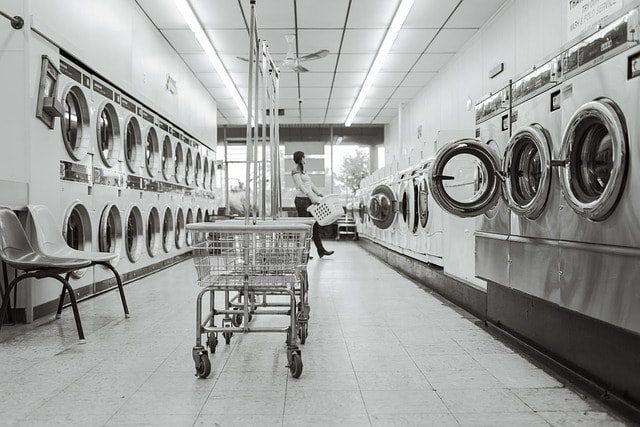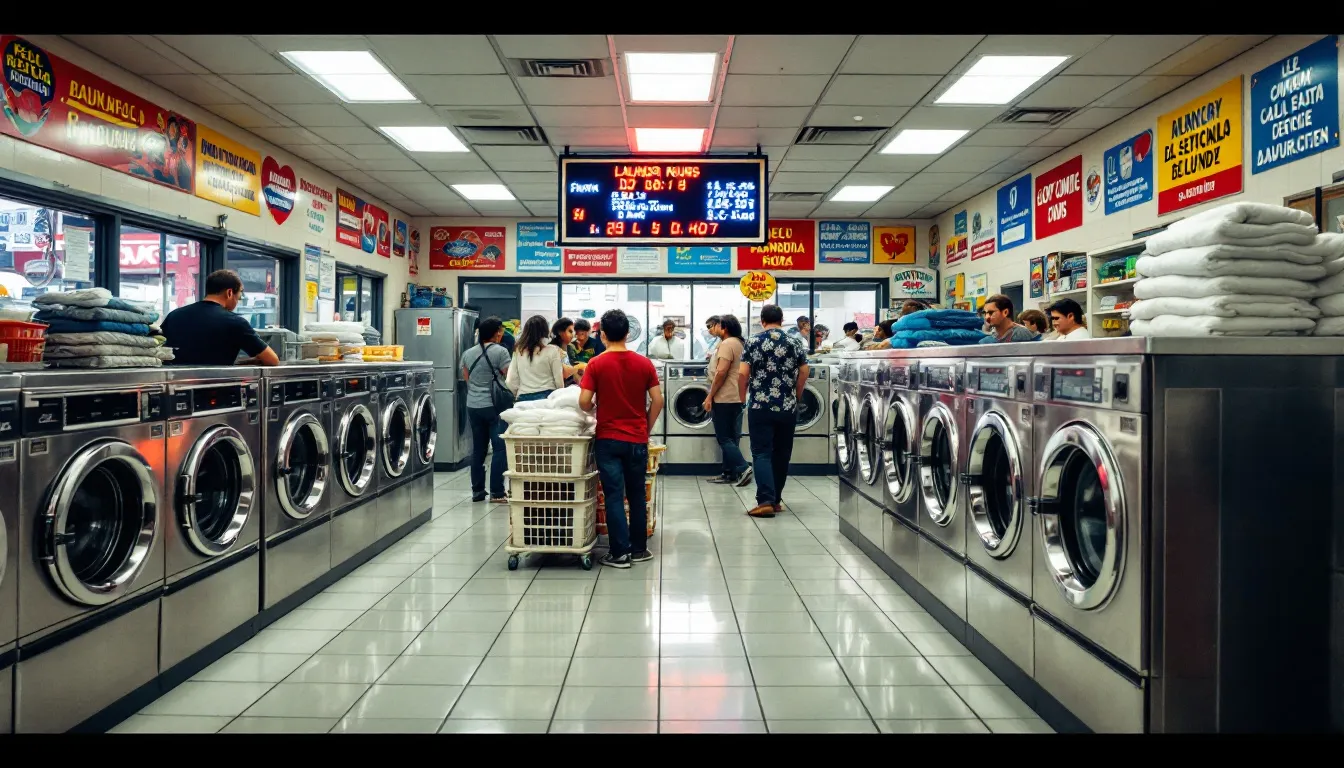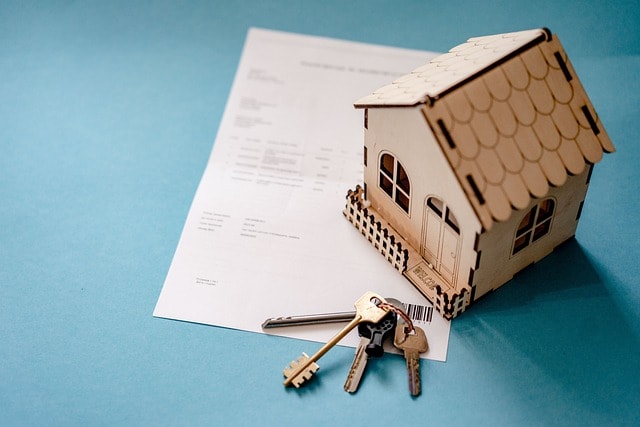How do I start a successful Laundromat business?
The laundromat business is a vital community resource that provides essential laundry services to individuals and families. With a low labor cost structure and potential for high returns, the laundromat industry has become an attractive business venture for small business owners.
However, starting a laundromat business requires careful planning, significant upfront investment, and a solid market understanding. Understanding the basics of the laundromat business and what it takes to succeed is crucial in this industry. Forming a limited liability company (LLC) can help protect personal assets by limiting potential losses to one’s initial investment.
Selecting an optimal business location is crucial. Choose neighborhoods with favorable demographics, such as areas rich in apartment complexes, and conduct thorough market research to ensure viability. High-traffic areas can boost business but may increase costs.
Coin Laundry Business Model
The coin laundry business model is popular and profitable for laundromat owners. This model involves providing self-service laundry facilities to customers who pay per use. It is attractive because it has low labor costs and can generate significant revenue. Entrepreneurs could obtain resources and guidance from the Coin Laundry Association.
However, laundry machines, equipment, and facilities require a significant upfront investment. To succeed in the coin laundry business, owners must carefully consider location, equipment selection, and pricing strategy.
Setting Up a Business Bank Account
Setting up a business bank account is an essential step for laundromat owners. A business bank account helps to separate personal and business finances, making it easier to manage cash flow and track expenses. Many business bank accounts link to your accounting software.
Laundromat owners can choose from various business bank accounts, including checking and savings accounts. Consider fees, interest rates, and customer service when selecting a business bank account. Additionally, laundromat owners may want to consider opening a separate account for payroll and taxes to simplify accounting and ensure compliance with regulations.
Customer Experience and Satisfaction
Providing a positive customer experience is crucial for laundromat owners. Customers expect clean, safe, convenient facilities and reliable, efficient laundry equipment. Laundromat owners can enhance the customer experience by offering additional services such as vending machines, folding tables, and comfortable seating.
Regular maintenance and upkeep of facilities and equipment are essential for customer satisfaction. By prioritizing customer experience and satisfaction, laundromat owners can build a loyal customer base and increase revenue.
Additional Services
Ancillary services such as vending machines, detergent sales, and arcade machines can also serve as additional revenue-generating options, enhancing overall profitability by acting as supplementary income streams alongside core laundry services.
Hidden Costs and Contingency Planning
Starting a new business involves significant upfront costs, including equipment, lease or purchase of a location, and initial marketing expenses. However, there are also hidden costs that laundromat owners should be aware of, such as utility costs, insurance premiums, and equipment maintenance.
To mitigate these risks, laundromat owners should develop a comprehensive business plan that includes contingency planning for unexpected expenses. This may involve setting aside a portion of revenue for emergency funds, investing in energy-efficient equipment, and negotiating favorable lease terms. By planning for hidden costs and contingencies, laundromat owners can ensure their business’s long-term success and profitability. Additionally, budgeting for equipment upgrades is essential to ensure operational efficiency and align with the business’s overall financial goals.
What are the startup costs for opening a Laundromat?
Small business owners should account for various startup costs when opening a laundromat. The exact cost to start a laundromat business depends on multiple factors.
Here are some of the common expenses you should know.
Business Formation
Establishing a business entity, such as an LLC or corporation, is crucial when starting a laundromat. It helps protect personal liability and provides legitimacy to your business. You may also need to obtain a sales tax permit.
By forming a business entity, you can limit potential financial losses and safeguard your personal assets. Additionally, registering a business entity properly involves specific steps that can set a solid foundation for your laundromat.
Business formation costs vary depending on your state and the type of business entity. The costs can range from a few hundred to several thousand dollars.
Lease or Purchase of Space
Leasing or purchasing a space for a laundromat can vary in cost depending on the location and size of the property. You must account for rent or mortgage payments. On average, leasing costs for a laundromat can range from $1,500 to $5,000 per month, depending on the square footage and location.
Depending on the area’s real estate market, purchasing a space for a laundromat can cost anywhere from $200,000 to $500,000 or more. It’s essential to consider these costs when budgeting for opening a laundromat to ensure financial stability and success in the long run.
Construction and Renovation Costs
One significant expense to consider when starting a laundromat is construction and renovation costs. These costs can vary depending on factors such as the size of the space, location, and the extent of renovations needed.
Renovations may include installing plumbing for washing machines, creating a layout that maximizes space efficiency, and ensuring the space meets all safety and regulatory requirements. Budgeting for these costs carefully is essential to ensure that the laundromat is set up correctly and can operate smoothly from the start.
Commercial Laundry Equipment
Laundry equipment is the most critical expense when starting a laundromat. This includes washers, dryers, folding tables, carts, and detergent dispensers. For example, a commercial-grade washer can cost between $1,000 and $5,000, while a commercial dryer can cost between $2,000 and $6,000.
Additionally, industrial folding tables can cost $200 to $500 each, and laundry carts can cost around $100 to $300 each. You might also want to invest in vending machines for laundry supplies or snacks and beverages for customers waiting for their laundry to finish. Budgeting for these expenses when planning to open a laundromat is essential to ensure the business runs smoothly and efficiently.
Utility Deposits and Setup Fees
Utility deposits are often required to set up water, electricity, and gas services. Additionally, setup fees may apply to commercial laundry equipment such as washers, dryers, and folding tables.
Business Licenses and Permits
A business license is fundamental when starting a laundromat to ensure compliance with local regulations and safety standards. Business owners should budget for the costs of obtaining necessary licenses and permits, which can vary depending on location and regulatory requirements. These costs typically include fees for business licenses, health permits, and possibly zoning permits to ensure compliance with local regulations.
Marketing and Advertising Expenses
Laundromat owners should budget for marketing and advertising expenses to attract customers and build brand awareness. These expenses could include social media marketing, online advertising, signage, flyers, and promotions to reach their target market effectively. Marketing expenses can range from $1,000 to $10,000 for initial promotional efforts.
Insurance Costs
It is important to consider insurance premium costs, especially the importance of business insurance for protecting investments against various risks. The necessity of commercial property insurance for safeguarding against risks such as theft, vandalism, fire, and weather-related damage cannot be overstated.
Additionally, securing comprehensive insurance coverage is crucial to mitigate financial losses associated with operational challenges. Types of insurance necessary for a laundromat include property, general liability, workers’ compensation, and business interruption insurance.
Initial inventory
The initial inventory costs can vary depending on the size of the operation and the types of machines needed. Budgeting for items such as detergent, dryer sheets, and other supplies is essential to ensure a smooth start to the business. The costs for commercial-grade washers and dryers can range between $100,000 and $300,000.
What are the ongoing costs of running a Laundromat?
The initial costs are only part of the budgeting process when starting a laundromat. Here are some expected ongoing costs associated with this type of business.
Monitoring Utility Rates
Utility costs can be a few thousand dollars per month. To control ongoing costs effectively, it’s crucial to regularly monitor utility rates and look for opportunities to reduce expenses. By staying informed about fluctuations in utility prices, laundromat owners can make informed decisions to optimize their ongoing operational costs. For laundromats, utilities, including water and electricity, can range from $2,000 to $6,000 per month.
Rent
Business owners should budget in rent for their laundromat, which can be one of the more significant ongoing expenses. Monthly rent for a laundromat can range from $2,000 to $10,000, depending on location.
Insurance
In most cases, laundromat business owners should carry commercial property insurance as a critical component for protecting against various risks, such as theft, vandalism, fire, and weather-related damage. Insurance premiums for laundromats typically range from $1,000 to $3,000 per year.
Budgeting for Breakdowns
One key aspect of mitigating risks in running a laundromat is to budget for unexpected breakdowns. Setting aside funds for potential equipment failures or maintenance issues can prevent financial strain and ensure operations continue smoothly without significant disruptions.
Renovation costs for a laundromat typically range from $50,000 to $200,000. Laundromat owners should reserve about 5-10% of annual revenue for contingency funds.
Building a Loyal Customer Base
Providing exceptional service and maintaining clean facilities are essential for building a loyal customer base. By offering a pleasant and efficient laundry experience, laundromats can attract repeat customers who value reliability and cleanliness.
How much capital do I need to Start a Laundromat?
Starting a laundromat business requires careful financial planning to ensure long-term success. Calculate your startup costs by factoring in expenses such as equipment, space renovation, permits, and marketing efforts. It’s also important to consider hidden costs. Additionally, exploring the laundromat business idea involves sourcing funding through grants and competitions, which can significantly aid in developing a successful business plan and marketing strategy.
The average startup costs for a laundromat typically range from $200,000 to $500,000, depending on the location and size of the business. However, your costs could vary significantly depending on your location, the size of your laundromat, and available equipment prices.
Research the average initial investment needed to establish a laundromat in your locality. Understanding local market dynamics and competition is crucial for setting realistic financial goals.
Estimating ongoing expenses accurately is essential for running a profitable laundromat. Consider utilities, maintenance, employee wages, and cleaning supplies when planning your budget.
Are there financing options for Laundromat Costs?
Exploring various funding options can help you secure the capital for your laundromat venture. Some entrepreneurs launch their laundromat using personal savings or funds, but financing options are also available.
Small Business Loans
Many business owners use small business loans for laundromat needs. There are various options available.
Equipment Financing: This option provides the funds to purchase necessary business equipment, which becomes the collateral for the loan. Equipment financing is one of the most important small business loan options for laundromats, as it can help secure the most critical aspect of the business: laundry machines and dryers.
Business Term Loans: These are traditional business loans where the borrower receives a lump sum disbursement of funds. The business then repays the principal and interest in fixed payments (usually monthly) for the loan term.
Small Business Administration (SBA) Loans: These government-backed loans are known for providing large sums at lower interest rates and extended repayment terms. Many consider SBA loans the gold standard of small business financing.
Business Line of Credit: Instead of a one-time disbursement, a business line of credit activates an available credit limit. The business can draw funds as needed and only pays interest on what it draws. This type of financing is excellent for covering unexpected costs or cash flow gaps.
Bad Credit Business Loans: Credit-challenged business owners have more difficulty accessing business loans. Some lenders, primarily online and alternative lenders, specialize in business loans for bad credit.
Grants and Funding Programs
Grants and funding programs support local businesses in the laundry service industry. They offer financial assistance that can significantly reduce initial investment burdens.
Loyalty Programs for Utilities
Loyalty programs or incentives for purchasing utilities at discounted rates are beneficial for minimizing ongoing costs. These programs help maintain operational expenses at a reasonable level.
What are the benefits of opening a Laundromat?
Opening a laundromat offers a range of benefits, making it a lucrative business venture. Providing a convenient service for individuals without laundry facilities at home ensures a steady customer base and reliable income.
Repeat business from satisfied customers contributes to consistent revenue and builds strong relationships within the community. By supporting small businesses and meeting residents’ needs, your laundromat becomes a valuable asset in the neighborhood.
Loyalty programs can further enhance customer retention and profitability, ensuring customers choose your establishment for their laundry needs. Opening a laundromat provides essential services, fosters community ties, and boosts business success.
What are the drawbacks of opening a Laundromat?
Opening a laundromat business involves risks that can impact its success, such as unexpected machine breakdowns leading to costly repairs and operational downtime. Managing ongoing costs like utilities is crucial, as fluctuating rates can affect profit margins.
The time commitment required to oversee daily operations, handle customer inquiries, and maintain facilities shouldn’t be underestimated. Competition from other local laundry services can also pose challenges, impacting customer base and revenue.
To thrive in a competitive market, laundromat owners must differentiate their services and provide added value to attract and retain customers.
Starting a Laundromat Business: Pros & Cons
Pros:
- Recurring revenue stream from regular customers.
- Minimal inventory and supply costs compared to other businesses.
- Flexibility in operating hours to cater to customers’ schedules.
- Potential for additional income through offering services like dry cleaning or alterations.
Cons:
- High initial startup costs for equipment and location lease.
- Maintenance and repair costs for machinery can be expensive.
- Competition from other laundromats or laundry services in the area.
- Need for constant supervision to prevent theft or vandalism of machines.
Frequently Asked Questions
Here are the most common questions about laundromat startup costs.
What are the different types of Laundromats?
Several types of laundromats cater to different needs and preferences.
Self-Service Laundromats: These are the most common types of laundromats where customers can do their laundry using coin-operated machines. The cost range for self-service laundromats typically varies based on the size and type of machines used.
Full-Service Laundromats: Full-service laundromats offer additional services such as washing, drying, folding, and even dry cleaning. The cost range for full-service laundromats is higher than self-service ones, as you generally need to hire staff for the full-service features.
Specialty Laundromats: Some laundromats specialize in specific services, such as eco-friendly washing, pet bedding cleaning, or large-capacity machines for bulky items like comforters and rugs. The cost range for specialty laundromats can vary widely depending on the services offered. Still, prices are typically higher than traditional laundromats due to the specialized nature of the services provided.
Is a Laundromat a good business idea?
The laundromat business model can be a lucrative venture if managed effectively. The laundromat industry has an estimated market size of $5 billion, with over 35,000 laundromats in the US. The average laundromat generates between $200,000 and $500,000 in annual revenue.
Factors like location, service offerings, and operational efficiency significantly contribute to laundromat revenue, and strategies such as implementing additional services, competitive pricing, and operational improvements can maximize earnings.
It can provide a steady income stream with minimal operating costs. Here are some tips on how to create a profitable laundromat business.
Initial Budgeting & Forecasting: The initial investment and startup costs must be carefully calculated. Considering the potential revenue from a steady customer base is crucial in determining the business’s profitability.
Market Research: Analyzing the demand for laundry services in the local area is essential. Understanding whether there is a market among small businesses and residents for a new laundromat is key. This assessment helps gauge the company’s feasibility and success.
Ongoing Management: Managing utilities, maintaining equipment, and implementing loyalty programs are vital operational aspects of running a successful laundromat. These factors play a significant role in attracting customers and ensuring their satisfaction, leading to repeat business.
Sweat Equity: Don’t underestimate the time commitment required to open and operate a laundromat. It’s crucial to allocate sufficient time to understand utility rates, develop cost-effective strategies, and ensure smooth operations. Maximizing efficiency is vital for long-term success in this competitive industry.
Estimating ROI & Setting Goals: When considering whether to start a laundromat, it’s essential to weigh the financial investments against the expected returns. Understanding the local market demand, operational requirements, and time commitment can help you make an informed decision about pursuing this business opportunity.
How much can I earn from Owning a Laundromat?
A laundromat owner can earn a significant income, with average annual salaries ranging from $30,000 to $100,000 or more, depending on the size and location of the business. Some estimates show that laundromat owners earn as much as $350k/year.
Owning multiple laundromats can significantly increase profits as owners benefit from economies of scale, reduced operating costs, and increased revenue streams. By expanding their business and managing multiple locations efficiently, laundromat owners have the potential to earn a substantial income and build a successful enterprise in the laundry industry.
Factors that impact laundromat profitability include:
- Location of the laundromat.
- Size and capacity of the machines.
- Operating expenses (utilities, maintenance, staff).
- Competition in the area.
- Pricing strategy.
- Marketing and advertising efforts.
- Customer service and satisfaction levels.
How can I save costs when Opening a Laundromat?
Here are some strategies on how to reduce laundromat costs and maximize profits.
Negotiate Discounts
Negotiate bulk discounts with suppliers for laundry equipment and supplies to reduce startup costs. By purchasing in large quantities, you can significantly lower your initial investment.
Energy Efficiency
Implement energy-efficient machines and practices to lower ongoing utility costs. These machines consume less electricity and water, saving you money in the long run.
Customer Loyalty Programs
Develop customer loyalty programs to retain a loyal customer base and increase revenue. Offering rewards for frequent visits can boost customer retention and attract new clients.
Consider Purchasing an Existing Business
Consider purchasing an existing laundromat business to save on initial investment and streamline the opening process. This option can be more cost-effective than starting from scratch.
The financial investment required to launch a laundromat franchise can range from $75,000 to over $500,000, but purchasing an established franchise offers benefits such as franchisor support and brand recognition.
How Much Does It Cost to Start a Laundromat – Final Thoughts
Starting a laundromat can be a lucrative business venture, but it requires careful planning and investment. The initial costs can vary depending on factors such as location, size of the facility, and equipment needed.
It is essential to consider the cost of setting up the laundromat and ongoing expenses such as utilities, maintenance, and employee wages. Conducting thorough market research and creating a comprehensive business plan can help ensure the success of your laundromat.
Contact us if you have more questions about the laundromat industry or want to apply for a small business loan. Our alternative funding experts can help you find the best financing options for your laundromat or other business goals.
















